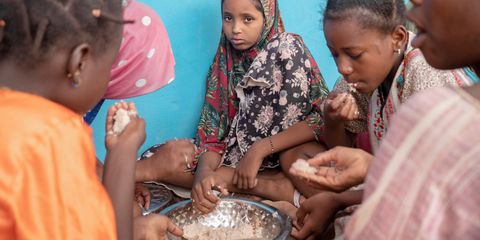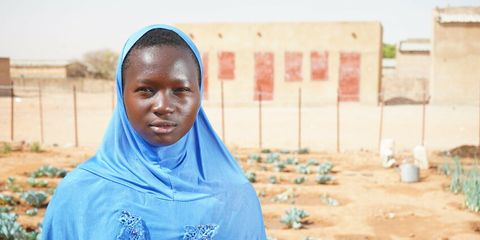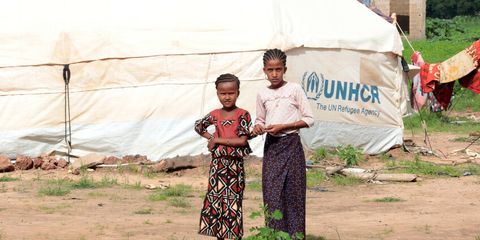In crisis-affected Mali, Aissata and her husband take care of their immediate needs, earn an income and keep their children in school.
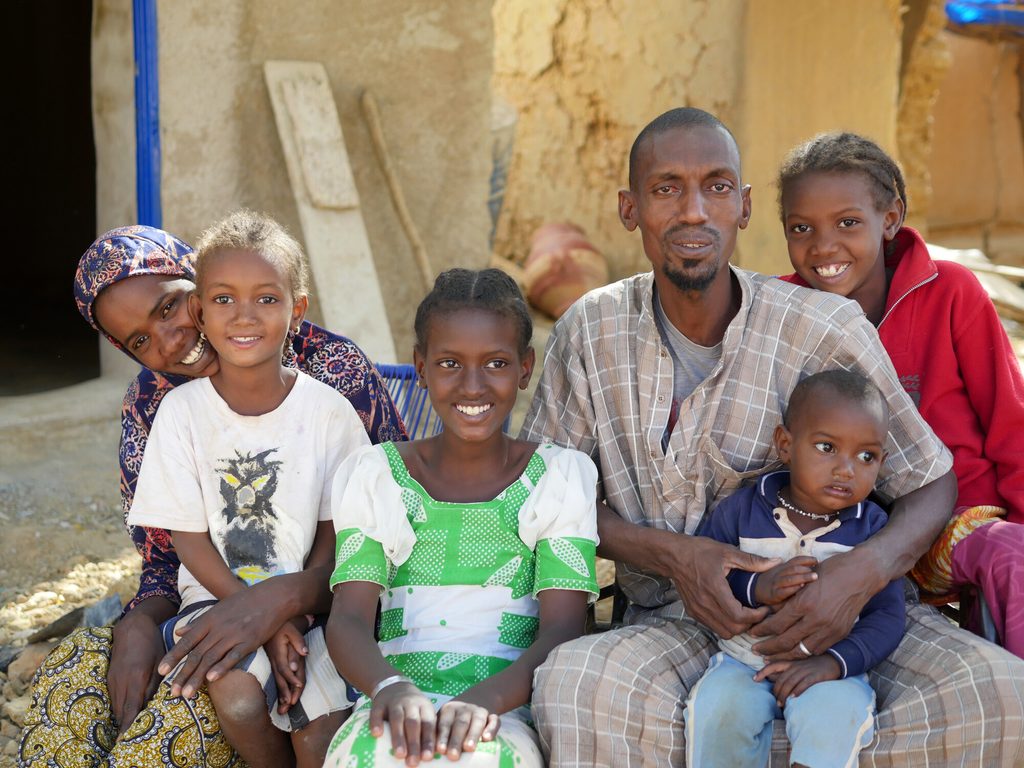
“The situation I fled my home village from is unfortunately still relevant. I can’t even consider going back at the moment. I have 3 main concerns: my children’s schooling, food and training. I left my village without having any trade. Housing also remains a big concern,” says Aissata, a mother of 5 children who is currently living Mopti.
Displaced communities showing resilience
“Our children are aware of the gravity of our situation and they are suffering because of it. They often talk about our status as displaced people. All I can tell them is that they must continue to go to school at all costs, it’s the only way for us to hope for a better life,” says Aissata.
Aissata and her family have struggled since they arrived in Mopti, finding it hard to adapt and locate enough food to eat. “Before the food crisis, I was able to eat well, but since I arrived here, this is no longer the case.
“Here in the big city, nothing is easy,” says Aissata. “If you eat once a day, you can consider yourself lucky. We eat what my husband brings back from the city, because I don’t work. This year, the food crisis has worsened, although we have never completely run out of food. My children are very affected by this whole situation. The food crisis affects them more than it affects us.”
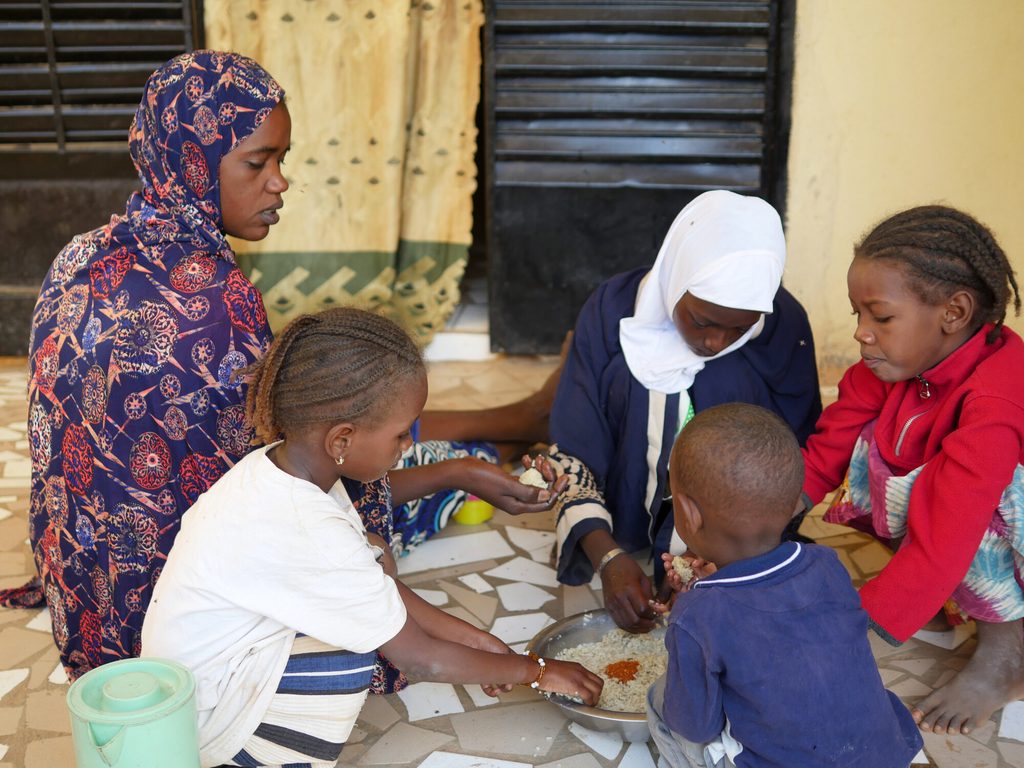
With the support of Plan International, Aissata and her family have received 2 cash transfers as well as non-food items. She used the money to buy sheep that she intends to fatten and resell.
“I bought a sheep for 34,000 FCFA (around €52) with the first money, and used the rest for daily expenses. I also invested the second amount in a sheep, and I used the rest to buy food. I am thinking about diversifying my income by starting an income generating activity. With a business, I will be able to buy millet, provide for our food needs, pay for the children’s schooling and finally have peace of mind.”
I saw the importance of girls’ schooling in the big city. I hope I am the last woman in my family who didn’t go to school.
Aissata
Aissata takes her children’s education seriously. Although her children’s schooling has not always been easy, she is well aware that this is what will ensure them a better future.
“I didn’t have the chance to go to school. Four of my 5 children are in school. Three of them go to the Madrasa (Muslim religious educational institution) but we have difficulty paying their school fees. As for my son, who is in public primary school, it is easier for us because it is free,” explains Aissata.
“My children are very conscientious, they manage to discipline themselves, to revise and to learn their lessons. My daughter asked if she could go and revise with the top of their class, whom she admires. I saw the importance of girls’ schooling in the big city. I hope I am the last woman in my family who didn’t go to school.”
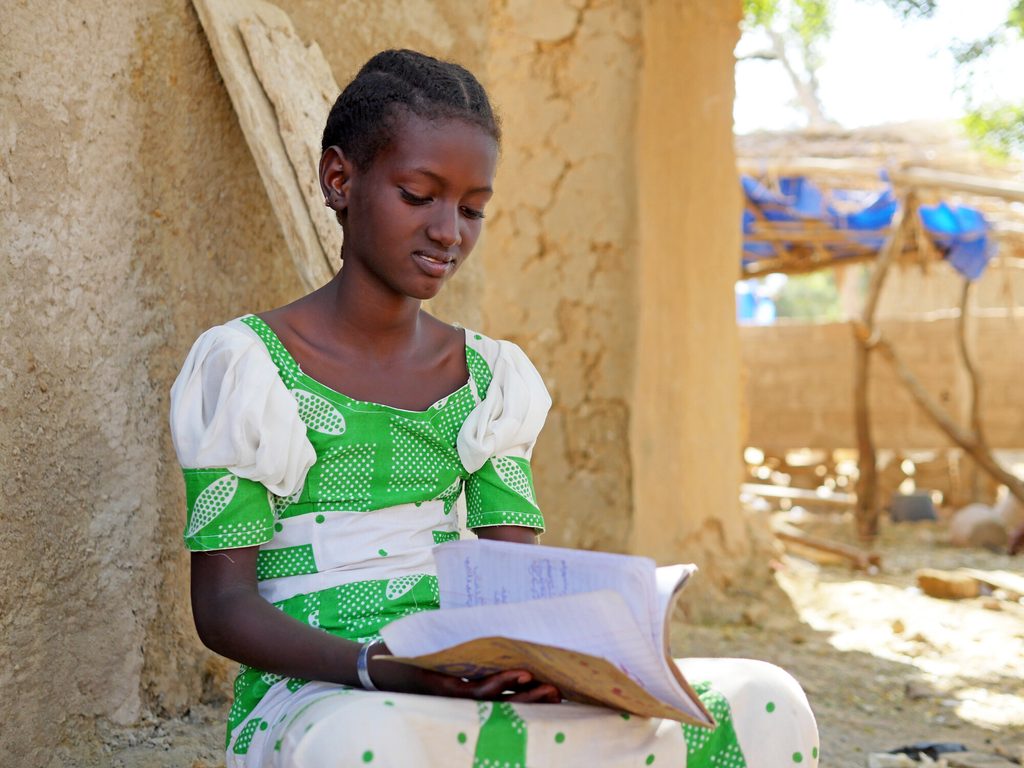
Awa, 11, one of Aissata’s daughters, tells us that she loves her school: “It’s a big school and I love my teachers. I would like to become a teacher to teach young girls like me. I have a lot of love for my parents, they take care of me very well. When I get back from school, I help my mother with the cooking.”
Beyond all the challenges encountered during the protracted crisis in Mali, whose women and children are paying the heaviest price, Aissata remains hopeful and is focused on trying to rebuild her life in a new environment.
“Despite the difficult conditions, poverty, fatigue and food crisis, children at least have access to education, which is an incredible opportunity for me. What we lack is work and training, especially for women. If we could learn a business, things would be very different. We could contribute to the expenses of the house. My greatest wish is that peace will return and that we can return home.”
About our intervention
Since 2012, Mali has been experiencing a political and security crisis aggravated in recent years by an upsurge in inter-community conflicts which has led to large scale population movements. More than 1.5 million people were recorded as being internally displaced, refugees or returnees in the country as of February 2024 according to UNHCR.
Through interventions focused on the distribution of unconditional cash, non-food items and agricultural seeds, Plan International is working to improve the situation for vulnerable displaced communities, as well as the host communities who have welcomed them in. The effects of the ongoing hunger crisis are having a serious impact on families who are finding it harder every day to feed their children.
From October to December 2022, 1,150 families including Aissata, were supported with cash transfers and non-food items.

